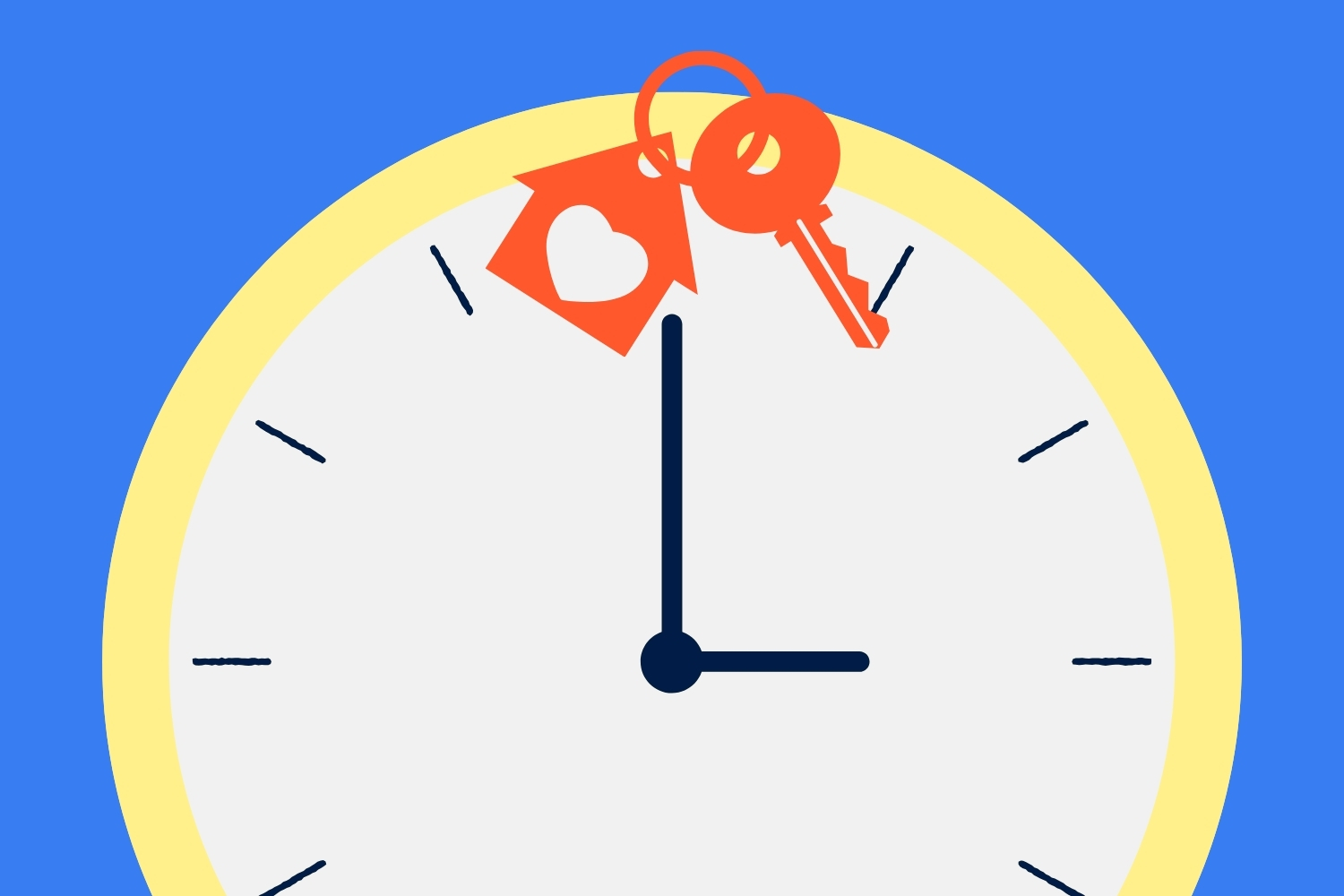
What's Your Timeline for Buying a Home?

Buying a house is a significant milestone that comes with both excitement and a fair share of challenges. If you’re asking, “How long does it take to buy a house?”, you’re not alone. The timeline for buying a home can vary significantly based on several factors, such as the real estate market, your financial situation, and the specific steps you need to take. On average, the homebuying process takes about four to five months from start to finish, but this can vary widely depending on individual circumstances.
In this blog post, we’ll break down each stage of the homebuying timeline to help you understand what to expect and how to prepare for this important journey.
1. Preparing Your Finances: 1 to 3 Months
Before you start house hunting, it’s crucial to get your finances in order. This preparation phase can take anywhere from a few weeks to a few months, depending on your current financial situation. To prepare yourself as best as possible for the homebuying journey, consider doing the following before you begin house hunting:
Check your credit score: Your credit score is one of the most critical factors that lenders consider when approving you for a mortgage. The higher your credit score, the more likely you are to secure a lower interest rate. If your credit score needs improvement, spend time paying down debts and ensuring all your payments are on time. Improving your credit score can take a few months, so start this process early.
Gather financial documents: Lenders will require several documents to assess your financial health, including pay stubs, bank statements, tax returns, and any other proof of income. Gathering these documents in advance can speed up the mortgage approval process.
Get prequalified for a mortgage: Getting prequalified for a mortgage is a vital step that can take a few days to a few weeks, depending on your lender and financial complexity. During prequalification, a mortgage lender reviews your basic finances and credit history to determine the maximum loan amount you can apply for. This not only helps you determine how much house you can afford; a prequalification letter can also make you a more competitive buyer in the eyes of sellers, as it shows you are serious and financially capable of buying a home.
From Mortgages to Home Equity Loans
Our local, award-winning lending team is ready to help you begin today.
2. Finding a Real Estate Agent: 1 to 2 Weeks
Working with a knowledgeable real estate agent can significantly ease the homebuying process. A good agent can help you understand the local real estate market, guide you through the homebuying timeline, and negotiate on your behalf. Spend time interviewing potential agents to find someone who understands your needs and has a strong track record in the market where you want to buy. This process might take a week or two.
3. House Hunting: 1 to 3 Months
The duration of the house hunting phase can vary greatly based on market conditions and your specific needs. In a competitive real estate market, it might take longer to find the right home that fits your budget and preferences. On the other hand, if you’re open to different options and the market has a lot of inventory, you could find a home more quickly.
Define your needs and wants: Before you start looking at properties, make a list of what you absolutely need in a home (like a specific number of bedrooms or bathrooms) versus what would be nice to have (like a large backyard). This will help narrow down your search and save time.
Attend open houses and viewings: Be prepared to visit multiple properties and attend open houses. This can take several weekends, especially if you have specific criteria in mind.
Make an offer: Once you find a home you love, you’ll work with your real estate agent to make an offer. Depending on the seller’s response, this process can take a few days to a week. If your offer is accepted, you’ll move on to the next stage. If not, you may need to negotiate or continue your search.
Paying earnest money: When you put an offer on a house, you’ll need to pay earnest money, a deposit that shows you’re serious about buying the home. If your offer is accepted, this money is held in escrow and applied to your down payment.
4. Offer Acceptance to Closing: 30 to 45 Days
Once your offer is accepted, the process of closing on the home begins. This phase typically takes 30 to 45 days but can vary based on several factors, such as the type of loan you’re getting or the results of the home inspection.
Conduct a home inspection: A home inspection is crucial to identify any potential issues with the property before finalizing the sale. This typically takes about a week to schedule and complete. If the inspection reveals any significant problems, you might need to renegotiate with the seller or in some cases, walk away from the deal.
Secure your mortgage: After your offer is accepted, you’ll need to finalize your mortgage. This involves submitting additional documents to your lender and getting the final loan approval. This process can take a few weeks, depending on the lender and the complexity of your financial situation.
Appraisal and underwriting: The lender will also require an appraisal to ensure the house is worth the loan amount. The appraisal process can take a few days to a week. During underwriting, the lender’s team will verify all your financial information to approve the mortgage. This step can add another week or two to the process.
Review closing disclosure and prepare for closing: A few days before closing, you’ll receive a closing disclosure, which outlines all the terms of your loan, including the interest rate, loan amounts, and closing costs. Review this document carefully and ask any questions you may have.
5. Closing Day: 1 Day
Final walk-through: Before the closing, you’ll have a final walk-through to ensure the property’s condition hasn’t changed since your last visit and that any agreed-upon repairs have been made.
Sign and close: Closing day is when you’ll sign all the necessary documents to finalize your home purchase. This typically takes a few hours at a title company’s office. Your lender will tell you what to bring for required documents.
6. Post-Closing: Immediate to Ongoing
After closing, the home is officially yours, but there are still a few things to do. Change the utilities to your name, update your address with relevant parties, and make plans for moving in. Additionally, keep all the closing documents in a safe place, as you’ll need them for tax purposes and if any issues arise with your home in the future.
Factors That Can Affect the Home Buying Timeline
While the average timeline for buying a house is four to five months, several factors can speed up or slow down the process:
Real estate market conditions: In a seller’s market, where there are more buyers than available homes, it might take longer to find a property and have your offer accepted. Conversely, in a buyer’s market, you might have more negotiating power and a faster timeline.
Cash offers vs. financed offers: If you’re able to make a cash offer, the closing process can be much quicker since there’s no need for mortgage approval. Cash offers are also more attractive to sellers, which can expedite the acceptance process.
Your financial preparedness: Having all your financial documents ready and a good credit score can speed up the mortgage approval process, while delays in providing necessary documentation can slow things down.
Type of mortgage: Certain types of loans, like FHA or VA loans, may require more paperwork and a longer approval process compared to conventional loans.
Conclusion
So, how long does it take to buy a house? The answer depends on multiple factors, but understanding the homebuying process and preparing in advance can help you navigate it more smoothly. By managing your finances, working with a trusted real estate agent, and knowing what to expect at each stage, you can reduce stress and make informed decisions throughout your homebuying journey. With patience and preparation, you’ll be in your new home before you know it.
Every homeownership journey is different. If you are having trouble navigating the real estate market or would benefit from real estate-focused credit counseling from the Amplify team, schedule an appointment with a community lender.


